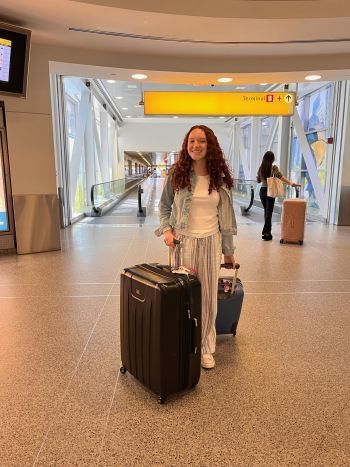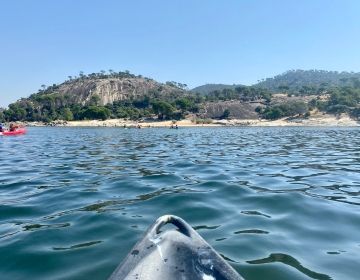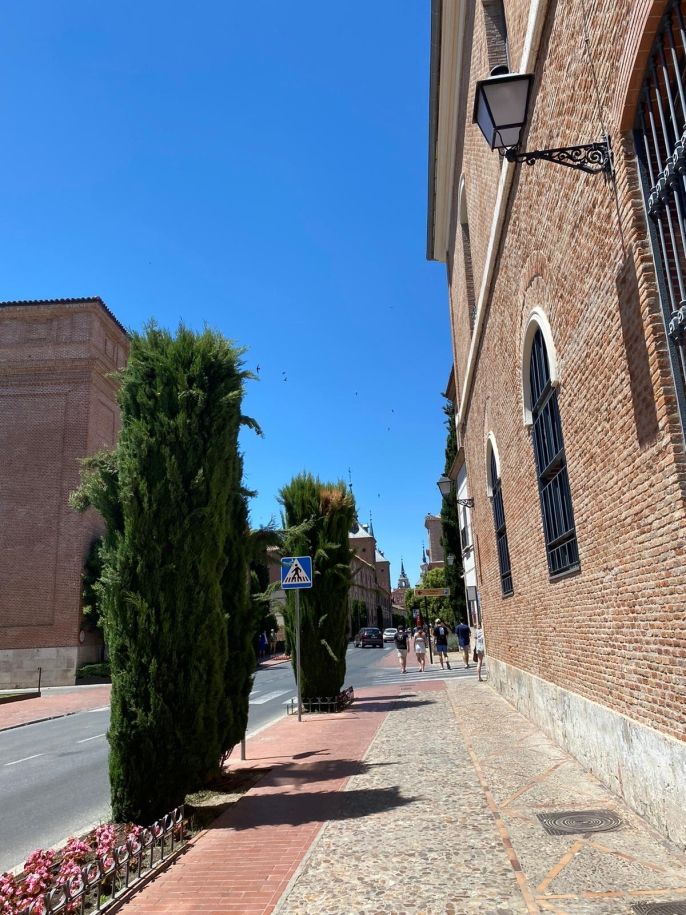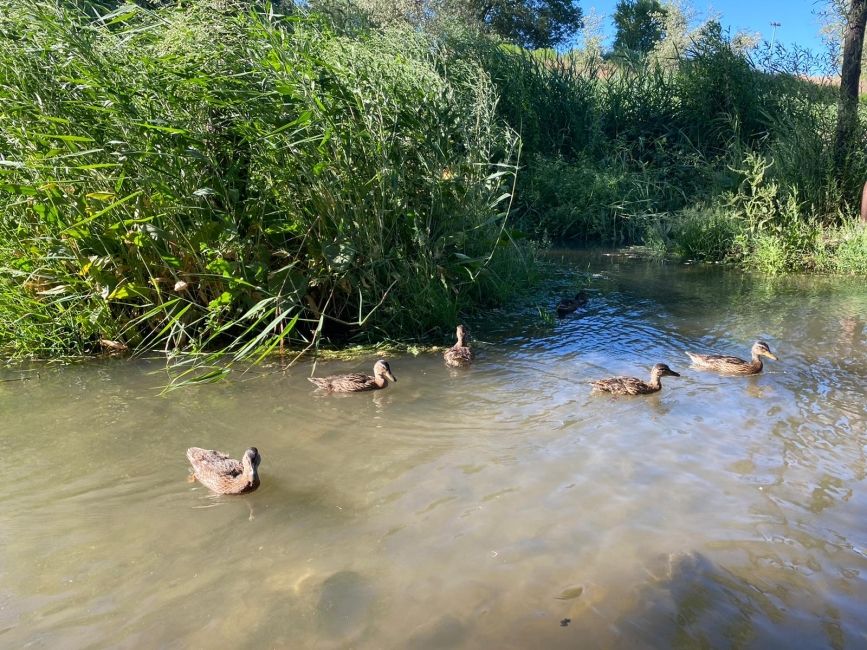Preparing to Study Abroad: What You Need to Know
Before studying abroad in Spain this past summer, I prepared extensively to make sure everything went smoothly during my travels and upon arrival. It is important to own your abroad experience and research your destination country for fashion trends, safety risks, and transportation methods to reduce a lot of the nerves around being in a new setting. CIEE was incredibly helpful before going abroad and very responsive to all of my questions and concerns, and this is a list of suggestions I have from my experience.
This list is mostly based on steps to take once you have applied to your program, but actions before that can include deciding how you want to fund your experience/researching scholarships, checking which CIEE programs are approved by your university and seeing which courses meet your major or elective requirements, decide when or how long you want to go abroad, and weighing the pros and cons of the many country options!
What to Pack:
Starting with clothing, look into the temperature of your destination country during the time you will be there. I studied in a small town in Spain called Alcalá de Henares, and considering this is far from the water it can be very hot over the summer (we sometimes experienced days over 100 degrees). It is also important to consider your housing arrangement when choosing what to bring because homestays sometimes do not have air conditioning.
I looked into fashion trends in Spain based on Instagram posts and packed outfits that could be mixed and matched. My biggest advice is having comfortable shoes because I walked a lot while abroad, but also do not bring too many pairs: I packed two pairs of sneakers and three pairs of sandals. It is important to know what clothing is acceptable in your destination - for instance, Spaniards like dressing up for any occasion and do not wear athleisure in public unless they are actively exercising. Obviously wear what makes you most comfortable and confident, but making note of what is “trendy” ensures that you will be immersed more easily.
EXPLORE CIEE'S ULTIMATE PACKING LIST
For reference, I brought a few pairs of jeans, many dresses because those would be light and comfortable in the heat and small to pack, shirts that could easily be paired with shorts, skirts, or pants, and a few bathing suits. I knew I would do a lot of shopping abroad so I did not want to overpack, and generally the clothing is cheaper there.
I actually went to Spain without any warm layers and used it as an excuse to buy a crewneck from my university. I only flew with a carry-on suitcase, a backpack, and a checked bag.
I highly recommend investing in packing cubes to keep your luggage organized. These keep everything compact and I was able to unzip them and slide them into my drawers to keep everything together. Also have a bag that can be used for travel, whether that be your backpack or a small duffel bag, and this can also double as extra luggage when you fly home with everything new you acquire abroad.

Pickpocketing Prevention:
Pickpocketing is common in Spain and other European countries. Unfortunately, anybody is at risk, but actions can be taken to prevent it and reduce the likelihood of it happening. I recommend investing in a fanny pack that can go across your chest or have a strap to connect your phone to your hand or a cord that goes around your neck. I personally used a purse that stayed close to the side of my body, and I was careful to only carry what I needed with me at all times and left everything else in my room. Always look out for yourself and your friends, do not leave anything unattended, and have scanned copies of your important documents stored in your room.

What to Buy Abroad:
As mentioned earlier, almost anything can be purchased abroad - only bring what you absolutely need from home. Go to your destination country with extra room in your luggage and only take essentials: toiletries, clothing, storage items like hangers, etc. can all be purchased abroad. I went with no decorations for my room because I knew it would not fit in my bags but loved finding cute items to personalize my space while abroad, such as posters from el Rastro market in Madrid.
Materials for class like notebooks and pens are also smart to purchase abroad. An odd moment for me was realizing that the standard paper size in Spain is slightly longer than paper in the United States, but long enough that it would not fit in the folders I brought from home. It is better to wait to buy anything until you know what you will need for classes, because it is also possible you can just use your laptop rather than needing to have materials to hand-write anything.
Phone Preparations:
Research and download any phone applications that could be helpful while abroad. In Spain, I used Ouigo, Omio, and Renfe for booking trains and flights for travel, Moovit to check bus schedules, Maps.Me to download maps of the cities you visit to be accessed and navigated without service. Applications for your airlines to and from your program and an application linked to your insurance card could also be useful.
Clear space on your phone if you take a lot of pictures like me or plan to download many applications to ensure your phone functions properly and you do not encounter any complications.
Let family and friends know how to reach you, whether that be on Whatsapp or another application.
Research SIM cards or phone plans that are recommended for the duration of your stay. I personally used a 20 euro SIM card from Orange and it was good for the two months that I was there. It needed to be refilled at the start of each new month and I did face some complications so learn from my mistakes and do better research, but I liked it for what I needed. The staff members at the Orange store were always very helpful when issues arose and easily accessible in the town I was studying in.

Other Important Actions:
Make sure that your passport is not expired or will not be expiring while you are abroad.
Check the requirements of your airline and/or destination country before going abroad. For example, I needed to submit documentation of vaccination to the Spanish government two days before flying.
Call your bank before going abroad to inform them that you will be using your credit cards in another country. Look into the foreign fees and decide which method of payment is best for you (I used a debit card rather than a credit card). Cash in the currency of your destination country does not need to be acquired before going abroad: the conversion rate is better at a local ATM, and avoid doing conversions in the airport if possible.
Related Posts

EAT, DRINK, EXPLORE: ALCALÁ DE HENARES
BEST FOOD TO EAT IN ALCALÁ DE HENARES Alcalá de Henares is known for its sweets and rosquillas de Alcalá are one of the city’s most famous pastries. Rosquillas de... keep reading

Academics Abroad in Spain
While academics were a big motivator for me going abroad, they did not take over my entire experience and I was able to embrace immersion and travel. The courses that... keep reading

Best CIEE Excursions in Spain
My experience abroad with CIEE was made most memorable by the organized excursions and activities. I studied in Alcalá de Henares, Spain and my class schedule revolved around the siesta... keep reading


